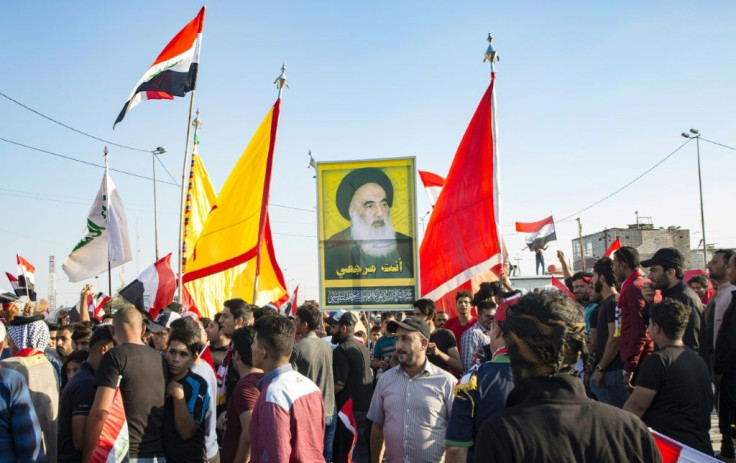Iraq 'Will Never Be The Same' After Protests: Top Shiite Cleric

Iraq will be deeply marked by weeks of demonstrations demanding sweeping reform, its top Shiite cleric said on Friday in some of his strongest remarks yet on the protest movement.
In his weekly sermon delivered by a representative in the Shiite holy city of Karbala, Grand Ayatollah Ali Sistani piled pressure on authorities to enact sweeping reforms in response to the deadly demonstrations.
"If those in power think that they can evade the benefits of real reform by stalling and procrastination, they are delusional," Sistani said.
"What comes after these protests will not be the same as before, and they should be aware of that."
Protests erupted on October 1 in an outpouring of anger over high unemployment and widespread corruption but have escalated into demands for root-and-branch reform of the political system.
Sistani, 89, cautiously backed the demonstrators when they first took to the streets, calling their demands "legitimate."
But he has firmed up his backing in recent days and on Friday called protests "the honourable way" to seek change.
Demonstrators have brushed off government promises of reform as too little, too late, and Sistani appeared to do the same on Friday.
"In response to the protesters' demands, nothing notable has been achieved on the ground so far," he said.
Earlier this week, he met the United Nations' top official in Iraq to back its phased roadmap for tackling the crisis.
The plan calls for electoral reforms within two weeks followed by constitutional amendments and infrastructure legislation within three months.
Parliament received a draft of a new electoral law this week but has yet to begin debating it.
On Friday, Sistani urged lawmakers to "work quickly to pass a fair electoral law that would restore people's faith in the electoral process".
"No one can give the government legitimacy but the people... Passing a law that does not provide this opportunity to voters would not be acceptable or useful," he said.
© Copyright AFP 2024. All rights reserved.





















